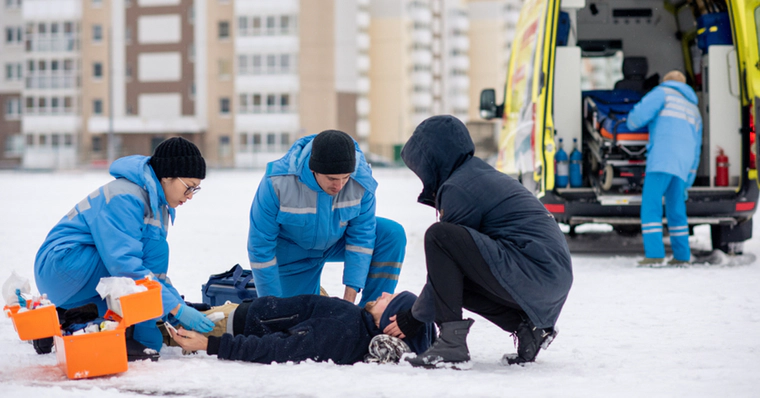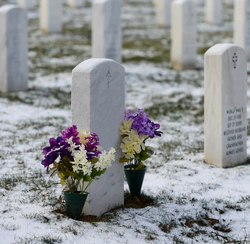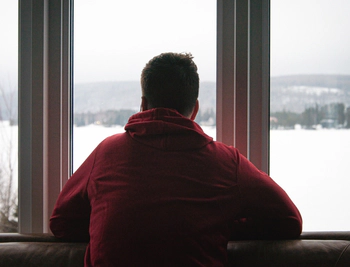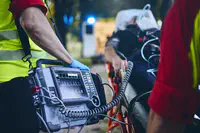Drug Overdoses Climb During the Winter Months
Scientific studies have shown that there is an increased risk for fatal drug overdoses following cold weather, suggesting people with an addiction should seek help as soon as possible, lest they become just another statistic.

Living with a drug addiction means one is always at risk of experiencing harm. No one who uses drugs or drinks to excess is safe, but some factors make substance abuse even more unsafe. For example, scientific data shows that people who are addicted to opioids are more likely to experience fatal overdoses following periods of particularly cold weather.
The findings haven’t determined a cause-and-effect relationship, but researchers at Brown University’s School of Public Health were able to show that fatal overdoses rose by 25% in Rhode Island and Connecticut in the days following cold snap weather events.1
A Summary of the Findings
Compared to days with an average temperature of 52 degrees, researchers found that drug overdoses spike 25% in the days following extended periods of freezing and below-freezing temperatures. The researchers examined drug overdoses that had occurred in the Northeast, and they found that ODs in that state tended to trend upward during winter, especially during periods of the winter months when the weather became extremely cold and bleak.
There are many potential reasons why fatal overdoses seem to increase during winter, particularly during and after winter storms and freezing spells. Brandon Marshall, the lead researcher of the Brown University study, speculated. “It is well known that opioids induce respiratory depression, and that’s what causes a fatal overdose,” he said. “However, there may be a host of other risk factors that contribute to opioid overdose deaths, which could be avenues for effective interventions.” Marshall is an associate professor of epidemiology at Brown.2

To arrive at the findings, Marshall’s team looked at more than 3,000 opioid-related deaths that had occurred in Connecticut and Rhode Island between 2014 and 2017. The researchers began by comparing the average temperature on the day of each death and the average temperature up to two weeks before with the average temperature of three reference days during the same month.
What they found was quite alarming. An average temperature of 32 degrees three to seven days before the day of overdose death was associated with a 25% increase in the risk of fatal overdose compared to periods with an average temperature of 52 degrees. In simple terms, within the 3,000 overdose cases examined, overdoses were 25% more likely to have occurred following spells of particularly cold weather than following spells of mild weather.
How Could Cold Weather Increase One’s Risk for an Opioid Overdose?
While the researchers could not show a cause-and-effect relationship between cold weather and increased risk for overdose, several factors could place addicts at greater risk during a cold snap:
-
Social isolation. During cold weather, people with an addiction are less likely to go out and about and interact with other individuals. Under such circumstances, when they’re using, they’re more likely to be using alone. Should an overdose occur, addicts are more likely to die if they’re alone, as no one is around to notice the overdose and quickly work to reverse it.
-
Negative biological effects. Opioids reduce breathing and heart rate. Cold weather makes breathing more difficult and makes the body shiver, thus making it more difficult for the body to regulate its temperature. The researchers hypothesized that if a user is particularly cold when they are using, they may not be as aware of the onset of an overdose as they would be if they were warm.

-
Reduced tolerance. During cold weather days, especially if snowstorms or other inclement weather is involved, people with an addiction may not have access to their drug of choice. Even just a few days without their drug could be enough to reduce their physical tolerance, especially if they are a daily user. Once the inclement weather clears and the addict can access drugs, they may take as much as they’re used to taking, but their body is no longer used to that amount of drugs in its system, leading to an overdose.
-
Lowered access to community support and emergency response services. During bad weather, people who may ordinarily stop by to check on an addicted loved one are more likely to stay at home. That means an overdose is more likely to go unnoticed. Further, even in the cases where an overdose is discovered and attempts to revive the individual are initiated, emergency medical responders may take longer to arrive due to poor weather, costing precious minutes and potentially leading to the loss of the addict’s life.
-
Increased likelihood of using drugs indoors. When it’s cold outside, addicts are more likely to use drugs indoors, where they’re less likely to be spotted and responded to by a Good Samaritan should an overdose occur.
-
Higher risk for depression. People are more likely to experience sadness and depression during winter. The increase in depressive emotional states may lead to more drug use, which in turn would increase the risk of overdose.
The Need for Treatment
Living with a drug addiction is always dangerous, now more so than perhaps ever before. According to the Centers for Disease Control and Prevention, more than 100,000 Americans have died from drug overdoses every year for the past three years in a row, an unprecedented loss of life and the first time overdoses crested 100,000 since recording began.3
Given that opioids are responsible for about 80% of all drug overdoses and given that people who suffer from addiction face a higher risk of death when they use during winter, it is of the utmost necessity that the family members of addicts do everything they can to get their loved ones help before it is too late. Help is available, and there is a pathway to recovery, but addicts have to take the first step, and their loved ones and family members must show up and help them.
Sources Cited:
-
NLM. “Increased risk of opioid overdose death following cold weather: A case–crossover study.” National Library of Medicine, 2019. ncbi.nlm.nih.gov ↩︎
-
Brown. “Cold weather increases the risk of fatal opioid overdoses, study finds.” Brown University, 2019. brown.edu ↩︎
-
CDC. “Provisional Drug Overdose Death Counts.” Centers for Disease Control and Prevention, 2023. cdc.gov ↩︎






 ®
®